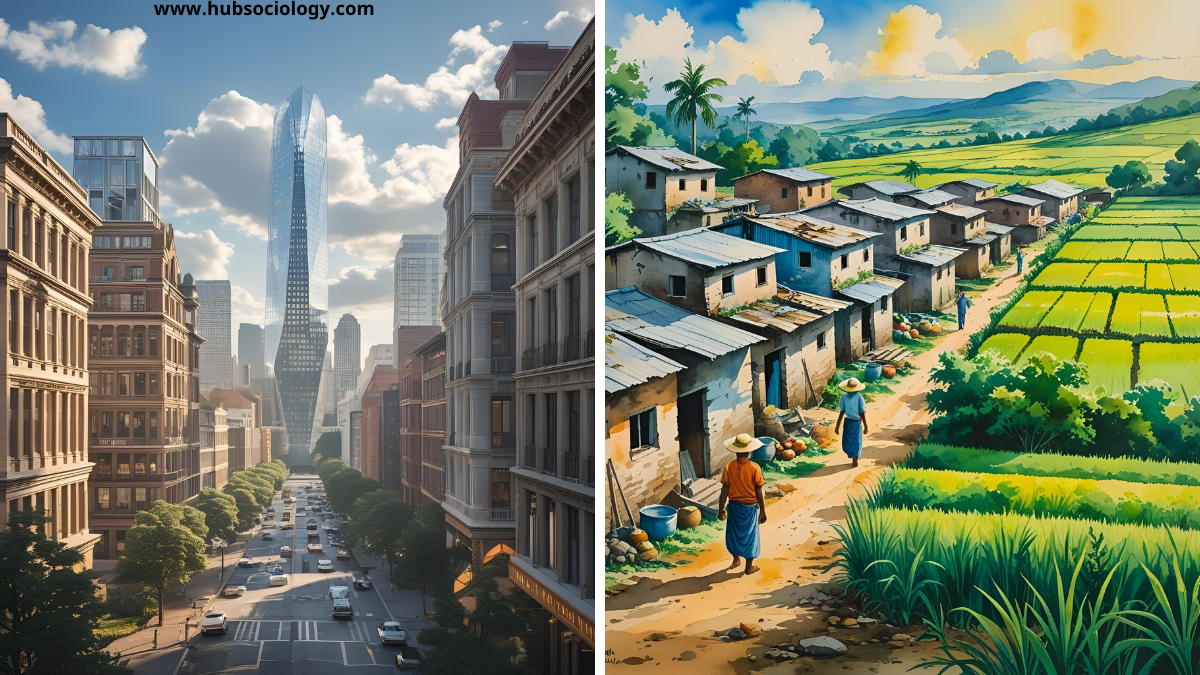Introduction on Globalization, Inequalities and Vulnerabilities
Globalization is one of the most influential processes shaping contemporary societies. It refers to the intensification of worldwide social relations and interconnections that link distant localities in such a way that events in one part of the globe influence lives elsewhere. From the spread of multinational corporations to digital communication and global cultural exchanges, globalization has transformed human societies profoundly. However, along with opportunities for development and cooperation, globalization has also deepened inequalities and created new forms of vulnerabilities. From a sociological perspective, understanding these dynamics requires analyzing how power, wealth, and resources are distributed globally, and how local communities experience these transformations.
This article explores the sociological aspects of globalization, with particular attention to its relationship with inequalities and vulnerabilities across nations, classes, and communities.

Table of Contents
Globalization as a Social Process
Sociologists argue that globalization is not merely an economic phenomenon but a multidimensional process encompassing political, cultural, technological, and environmental dimensions. Anthony Giddens views globalization as the “intensification of worldwide social relations” while Roland Robertson emphasizes the increasing consciousness of the global as a shared social space. These perspectives underline that globalization reshapes social structures and alters power relations, creating winners and losers in the global order.
Inequalities in the Age of Globalization
One of the central sociological concerns about globalization is the production and reproduction of inequalities. While globalization promotes the idea of interconnected prosperity, in reality, it often leads to uneven development.
1. Economic Inequalities
- Global markets allow the free flow of capital but not necessarily labor. Developed countries often control financial flows, leading to the exploitation of cheap labor in the Global South.
- Multinational corporations benefit disproportionately, while local producers struggle to compete. For instance, small-scale farmers in developing countries are often displaced by industrial agribusinesses linked to global supply chains.
- Wealth concentration has intensified: the richest 1% owns more than half of the world’s wealth, a phenomenon directly linked to global financial capitalism.
2. Social Inequalities
- Access to education, healthcare, and digital technologies is unevenly distributed. The “digital divide” illustrates how marginalized groups lack the infrastructure to participate fully in the global knowledge economy.
- Gender inequalities are also reinforced. While globalization has created job opportunities for women, particularly in service industries and export processing zones, these jobs are often poorly paid, insecure, and exploitative.
3. Cultural Inequalities
- Globalization spreads dominant Western cultural products—films, music, fashion—leading to cultural homogenization. Local cultures, languages, and traditions risk marginalization or commodification.
- Media ownership concentrated in a few global corporations ensures that cultural narratives often reflect Western-centric perspectives, silencing alternative voices.

4. Global North vs. Global South Divide
The most visible inequality is between developed and developing nations. While globalization provides the Global North with technological and financial advantages, the Global South often experiences dependency, debt crises, and resource extraction without equitable development.
Vulnerabilities in the Globalized World
Globalization also exposes individuals, communities, and nations to new vulnerabilities. These vulnerabilities are often interconnected with existing inequalities, making certain groups more susceptible to risks.
1. Economic Vulnerabilities
- Global financial crises, such as the 2008 meltdown, reveal how interconnected markets can create instability for workers and small economies.
- Workers in export-driven industries face job insecurity when global demand shifts. Outsourcing and automation further exacerbate precarious employment.
2. Political Vulnerabilities
- Sovereignty of weaker nations is undermined by international financial institutions and trade agreements that favor powerful states.
- Migration, a product of globalization, creates political tensions as migrants often face xenophobia, exclusion, and lack of rights in host societies.
3. Health Vulnerabilities
- Globalization accelerates the spread of diseases. The COVID-19 pandemic revealed how interconnectedness can quickly turn a local outbreak into a global crisis.
- Access to healthcare and vaccines reflected global inequalities, with wealthy countries hoarding resources while poorer nations struggled.
4. Environmental Vulnerabilities
- Global industrialization has contributed to climate change, deforestation, and biodiversity loss. Communities in the Global South, despite contributing least to global emissions, are the most vulnerable to natural disasters, rising sea levels, and resource scarcity.
- Displacement due to climate change creates “climate refugees,” a new vulnerable group in international relations.
5. Cultural Vulnerabilities
- Indigenous cultures and traditional livelihoods face erosion as global consumerism and urbanization expand.
- Loss of cultural identity increases alienation, particularly among youth, who are torn between global cultural flows and local traditions.
Sociological Theories on Globalization, Inequalities and Vulnerabilities
Several theoretical frameworks help explain these dynamics:
- World-Systems Theory (Immanuel Wallerstein)
- Divides the world into core, semi-periphery, and periphery nations. Core nations dominate through capital, technology, and military power, while peripheral nations remain dependent suppliers of raw materials and cheap labor.
- This framework highlights structural inequalities embedded in globalization.
- Dependency Theory
- Argues that underdevelopment of the Global South is not due to internal weaknesses but because of historical exploitation and ongoing dependency on the Global North.
- Risk Society (Ulrich Beck)
- Suggests modern societies are increasingly preoccupied with managing risks produced by globalization—environmental hazards, financial crises, and health pandemics. Vulnerabilities are no longer localized but globalized.
- Cultural Imperialism
- Explains how dominant global powers impose their cultural values, media, and consumer products, leading to cultural inequalities and vulnerabilities of local identities.
Globalization and Resistance
Despite the challenges, globalization has also given rise to resistance movements that challenge inequalities and vulnerabilities:
- Global social movements such as the World Social Forum and climate justice campaigns advocate for equitable globalization.
- Digital activism enables marginalized voices to connect and challenge power structures. For example, the #MeToo and #BlackLivesMatter movements gained global traction through digital networks.
- Local resistance—from indigenous land rights movements to fair-trade cooperatives—represents efforts to reclaim autonomy in the face of global pressures.

Towards Inclusive Globalization
Sociology does not view globalization as inherently negative but emphasizes the need for inclusive and equitable models. Possible pathways include:
- Strengthening global governance through institutions that represent all nations equitably rather than serving the interests of powerful states.
- Promoting sustainable development to balance economic growth with environmental protection and social equity.
- Supporting local cultures and economies through policies that protect traditional knowledge, encourage fair trade, and reduce dependency.
- Ensuring social protection measures like universal healthcare, social security, and education to mitigate vulnerabilities.
Conclusion on Globalization, Inequalities and Vulnerabilities
Globalization has fundamentally reshaped the world, creating networks of connection that transcend national boundaries. Yet, its impact has been deeply uneven, reproducing and amplifying inequalities and exposing individuals and societies to vulnerabilities ranging from economic instability to cultural erosion and environmental crises. From a sociological perspective, globalization cannot be understood merely as economic integration but as a transformative force that reorganizes power, identity, and social relations on a global scale.
Addressing inequalities and vulnerabilities in the age of globalization requires critical awareness of these dynamics and collective efforts to construct a more inclusive, sustainable, and humane global order. Only then can globalization fulfill its promise of interconnected prosperity rather than deepen divisions among people and nations.
Do you like this this Article ? You Can follow as on :-
Facebook – https://www.facebook.com/hubsociology
Whatsapp Channel – https://whatsapp.com/channel/0029Vb6D8vGKWEKpJpu5QP0O
Gmail – hubsociology@gmail.com
Topic-related exam-style questions on Globalization, Inequalities and Vulnerabilities
5 Marks Questions on Globalization, Inequalities and Vulnerabilities
- Define globalization from a sociological perspective.
- What is meant by the term “digital divide” in the context of globalization?
- State two examples of economic inequalities caused by globalization.
- What do you understand by cultural homogenization?
- Mention two ways in which globalization increases environmental vulnerabilities.
10 Marks Questions on Globalization, Inequalities and Vulnerabilities
- Discuss how globalization has deepened inequalities between the Global North and the Global South.
- Explain the role of multinational corporations in creating both opportunities and vulnerabilities in developing countries.
- How does Ulrich Beck’s concept of “Risk Society” help us understand vulnerabilities in globalization?
- Examine the impact of globalization on gender inequalities in employment.
- Discuss how global social movements resist the negative impacts of globalization.
15 Marks Questions on Globalization, Inequalities and Vulnerabilities
- Critically evaluate the relationship between globalization and social inequalities with reference to World-Systems Theory.
- Analyze how globalization creates new vulnerabilities in health, culture, and the environment. Use relevant sociological examples.
- “Globalization has produced both opportunities for development and heightened vulnerabilities.” Discuss with sociological perspectives.
- Explain how Dependency Theory and Cultural Imperialism provide insights into inequalities within globalization.
- Suggest strategies for building an inclusive and equitable model of globalization, drawing upon sociological theories.
